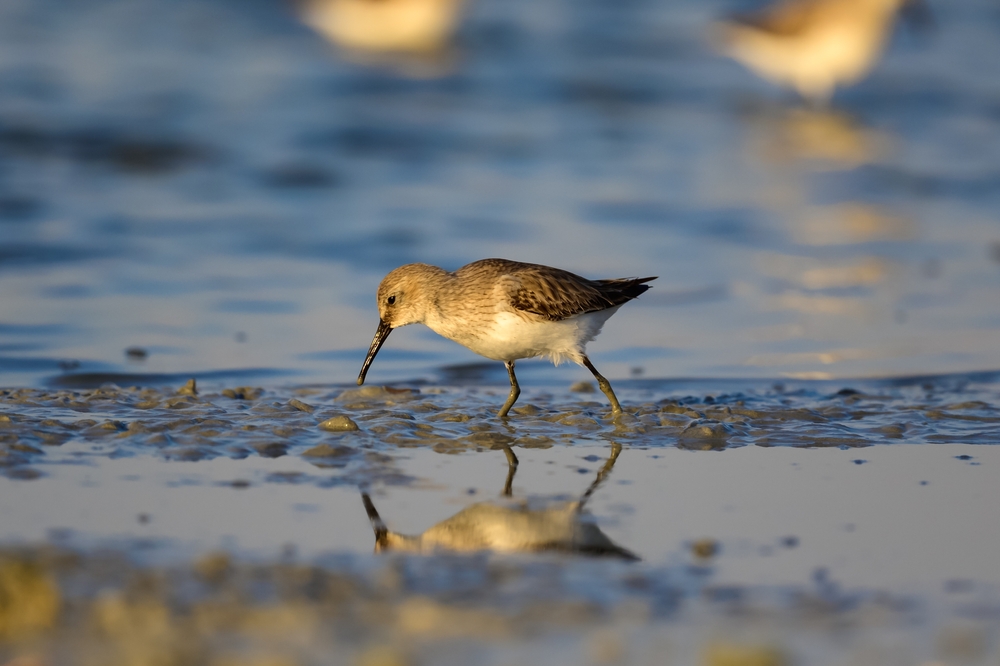Advocating for nature-based solutions

date: 30/03/2023
The MERLIN project is developing The MERLIN Academy which supports freshwater ecosystem restoration and nature-based solutions. It will be an online learning place that can be accessed by registered users and that will allow interactive learning options whilst keeping track of the user's learning progress over its completion. It covers topics such as innovative restoration techniques, fundraising, restoration governance and monitoring.
There are already a number of webinars recordings saved including:
- Monitoring and Evaluation of Nature-Based Solutions – thinking outside the box!
- Strategic Monitoring to Learn from Nature-Based Solutions and Natural Infrastructure Projects
- Practical applications of Nature-based Solutions in river restoration and management
- Nature Impact Tokens as a means unlock "nature positive" investment
Find out more about the academy and watch the nature-based solutions webinars: MERLIN Academy
The project has also released several NBS-related resources:
- Mainstreaming aquatic restoration using Nature-based Solutions [PDF report]
Mainstreaming aquatic restoration using NBS requires involving all relevant stakeholders and understanding their connection with rivers and wetlands. MERLIN's data suggests these sector actors are aware of the environmental and socio-economic challenges arising from degraded freshwater ecosystems and are aware of the types of NBS that MERLIN will demonstrate and implement. However, not all sector actors were convinced of the need for radical change/transformation or that they could rely on NBS to deliver their sector needs. - Integrating nature positive solutions into our economy [PDF briefing papers]
Read about what MERLIN have learnt so far about the relationship of three sectors (hydropower, insurance and peat extraction) with freshwater restoration and NBS, and MERLIN's proposed co-operation points from where transformation could arise. - New framework for monitoring systemic impacts of freshwater and wetland restoration actions [PDF handbook]
Robust demonstration case-studies are needed to evaluate whether improvements in ecosystem condition are translated into improvements in ecosystem services. This research is essential for effectively scaling-up nature-based solutions across Europe and providing the evidence to support transformation agendas in society and industries, and ultimately supporting the ambitions of the European Green Deal. - MERLIN's 17 case studies [online pages]
The case study portal provides information at small and European-scale across the restoration types including Peatland & Wetland, Small Streams and Basins, and Large Transboundary Rivers. The portal also indicates progress in the implementation of new restoration measures through application of the IUCN Global Standard for evaluating Nature-Based Solutions. - The Freshwater Blog: four themes to strenghen collaboration [online pages]
MERLIN works with representatives from six economic sectors to mainstream nature-based solutions in their activities across Europe. In their latest Freshwater Blog entry they share four valuable lessons from talking to these sectors and which have wider implications for ecological restoration initiatives elsewhere. - MERLIN Innovation Awards
Find out about the winners of the 2023 awards which seeks new and widely applicable solutions for restoring or enabling financial benefit for freshwater ecosystems. Learn about the FLOLIZ floating rafts which boost terrestrial and aquatic biodiversity, and Plastic Fischer Credits which tackles ocean plastic already in rivers using a local, low-tech and low-cost approach.
The RES-COAST project has published two papers in the Nature-Based Solutions journal:
- Embracing Nature-based Solutions to promote resilient marine and coastal ecosystems provides scientific guidance on how and where to implement marine and coastal NBS to better facilitate their design, effectiveness and value through innovative synergistic actions. The research article provides useful points for prioritising that will contribute to building and co-creating the marine and coastal NBS.
- REST-COAST has also investigated the barriers and enablers for upscaling coastal restoration. The research article proposes a systemic restoration, which integrates NBS building blocks to provide climate-resilient ecosystem services and improved biodiversity to curb coastal degradation. The proposed results of the paper suggest a reduction of coastal risks from a decarbonised coastal protection, which at the same time increases coastal blue carbon.

Tour du Valat (a partner in the WaterLANDS project) in partnership with PIM Initiative and MEDSEA has coordinated with WWF Spain and MedWet, a guide to help decision-makers and funders restore wetlands.
Restoring Mediterranean Wetlands is a policymaker’s handbook on sustainable management and conservation of water by 2030. It provides guidance on developing and implementing wetlands restoration initiatives. Experts in the field share experiences and case studies of integrated restoration using Nature-based Solutions and how to set clear objectives, identify priorities and undertake continuous evaluation as well opportunities to transfer knowledge and upscaling. It also contains tools, methodologies and checklists for planners to ensure they’ve thought of everything that needs to happen before, during and after any wetlands restoration project.


